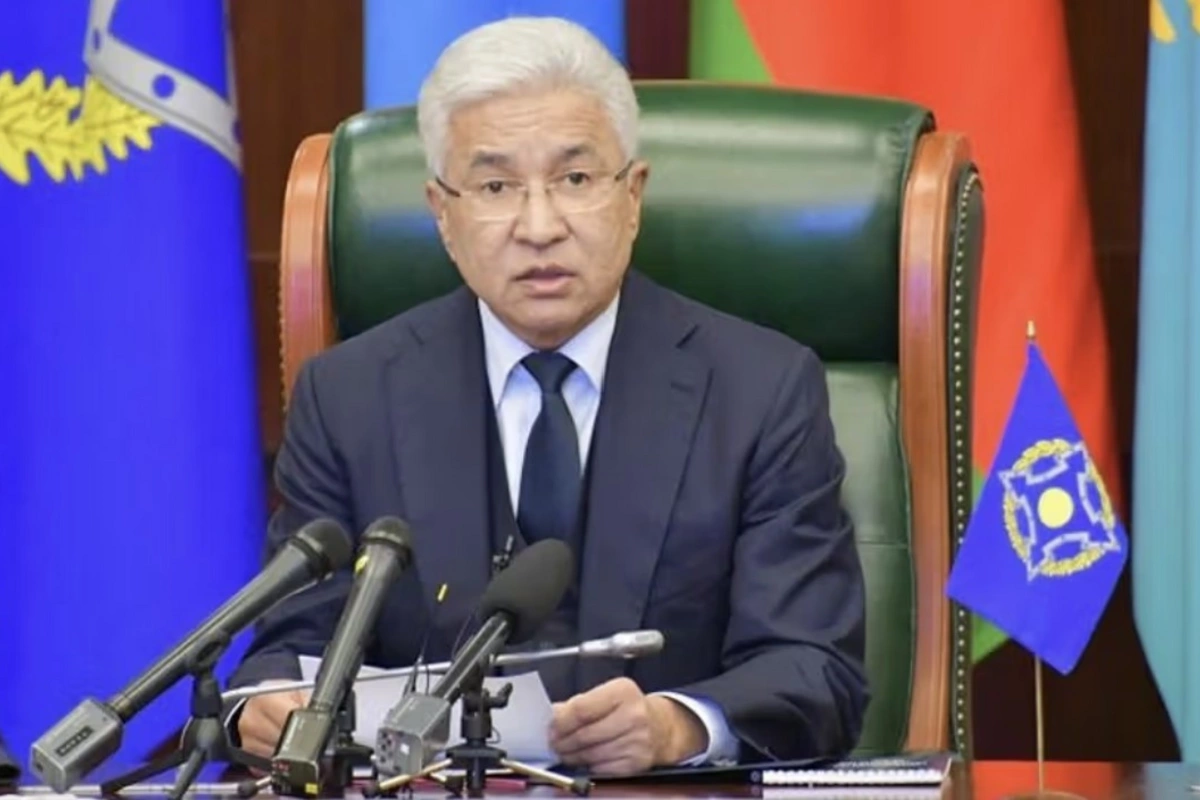
Photo: afintl.com
Imangali Tasmagambetov, Chief of the Collective Security Treaty Organization (CSTO), highlighted Afghanistan as a significant source of potential terrorist and drug trafficking threats to Central Asia.
He emphasized that the CSTO has decided to bolster the Tajikistan-Afghanistan border to address the growing risk of terrorism spreading from Afghanistan into the region, The Caspian Post reports citing foreign media.
During a meeting on February 8, Tasmagambetov emphasized the importance of an intergovernmental program to fortify the Tajikistan-Afghanistan border. He stated that the decision was based on the shared recognition among CSTO allies of the growing threats posed by Afghanistan’s instability.According to the CSTO’s statement, Tasmagambetov underlined that the spread of terrorism, extremism, and drug trafficking in Central Asia is primarily attributed to Afghanistan. These issues continue to pose serious risks to regional security.
Tasmagambetov called for closer collaboration among CSTO parliamentary members to ensure the security of the region. He stressed that cooperative efforts are essential to tackle the threats emanating from Afghanistan and prevent further destabilization.
Andrey Serdyukov, the CSTO’s Chief of Joint Staff, also expressed concerns over Afghanistan’s role as a source of instability, radical ideology, terrorism, and drug trafficking. He echoed Tasmagambetov’s views, labeling Afghanistan as a threat to the surrounding countries, with its internal issues impacting the broader region.
This comes amid an upcoming United Nations Security Council meeting on Monday, February 10, to address the threats posed by ISIS from Afghanistan and the broader region. During the meeting, the Security Council will review a report by UN Secretary-General Antonio Guterres on the ongoing dangers stemming from ISIS activities.
The report, which was shared with Security Council members on Friday, February 7, emphasizes the growing threat of the ISIS-Khorasan branch both within Afghanistan and beyond. It also highlights the group’s extensive propaganda reach and substantial cash reserves, estimated at around 10 million dollars in Iraq and Syria. Additionally, the report discusses the ISIS suicide attack that targeted Khalil-ur-Rahman Haqqani, the Taliban’s Minister for Refugees, which may have been aimed at undermining the Taliban’s claims of maintaining security in Afghanistan.
The CSTO’s focus on reinforcing the Tajikistan-Afghanistan border and the call for regional cooperation reflect the growing concern about Afghanistan’s role in regional instability. Central Asia remains vulnerable to the spillover effects of terrorism and drug trafficking from Afghanistan.
The international community must continue to address the root causes of instability in Afghanistan, with collaborative efforts between neighboring countries, regional organizations, and global bodies like the UN being essential in countering the ongoing threats.
Share on social media